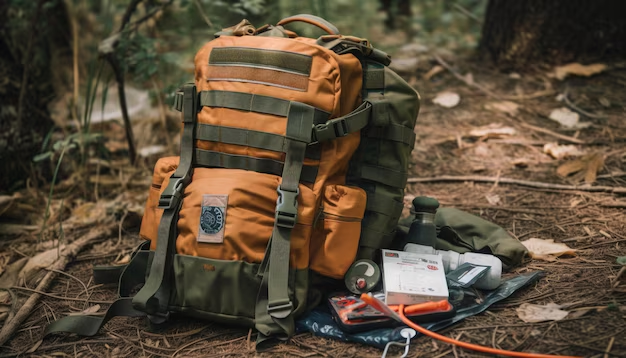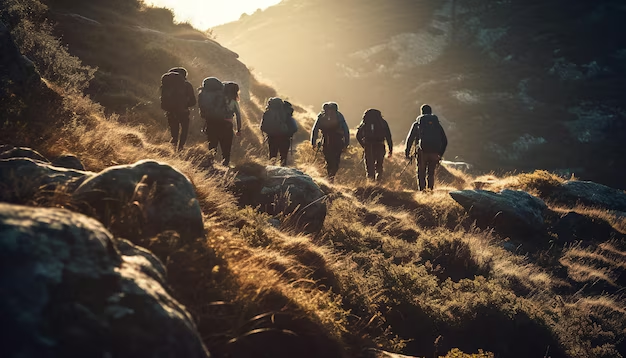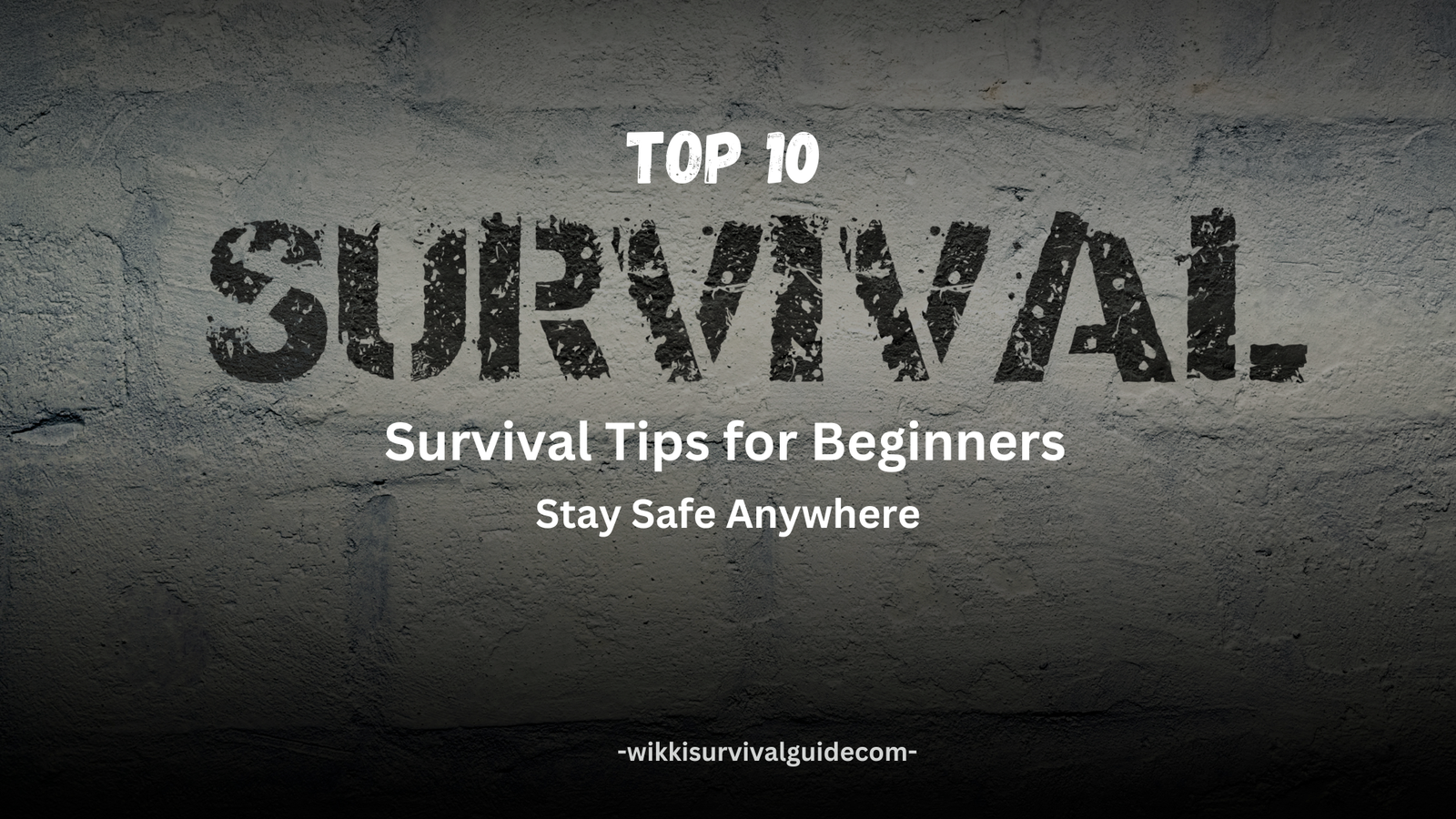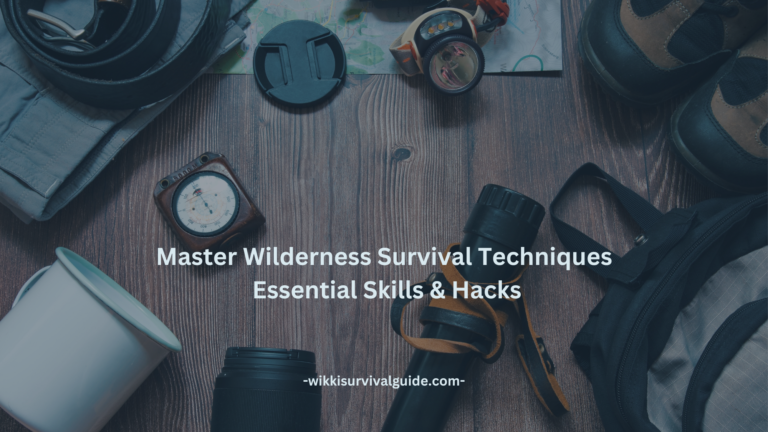Introduction
Survival skills are essential for anyone, whether you’re an outdoor enthusiast, a frequent traveler, or just someone who wants to be prepared for emergencies. Knowing how to stay safe and handle unexpected situations can make all the difference. In this guide, we’ll share ultimate survival tips for beginners to help you stay safe anywhere, from the wilderness to urban environments.

Essential Survival Tips for Beginners
1. Stay Calm and Assess the Situation
In any survival scenario, staying calm is the first step. Panic can cloud your judgment and lead to poor decisions. Take a deep breath, assess your surroundings, and prioritize your needs.
2. Find or Build Shelter
Shelter is crucial for protection against harsh weather conditions. Look for natural shelters like caves or overhangs, or build one using branches, leaves, and other materials.
3. Secure Clean Water
Water is essential for survival. Find a clean water source like a stream or river, and purify it by boiling or using water purification tablets. Avoid drinking untreated water to prevent illness.
4. Start a Fire
Fire provides warmth, light, and a way to cook food. Carry waterproof matches or a lighter, and learn how to start a fire using natural materials like dry leaves and twigs.
5. Find Food Sources
If you’re stranded for an extended period, finding food becomes important. Look for edible plants, fruits, and nuts, or learn basic trapping and fishing techniques.
6. Learn Basic First Aid
Knowing basic first aid can save lives. Carry a first aid kit and learn how to treat wounds, fractures, and other injuries.
7. Signal for Help
If you’re lost or in danger, signaling for help is crucial. Use a whistle, mirror, or bright clothing to attract attention. Create large SOS signs on the ground using rocks or branches.
8. Carry a Survival Kit
A well-stocked survival kit is a must. Include items like a knife, flashlight, rope, compass, and emergency blanket.
9. Know How to Navigate
Learn basic navigation skills using a map and compass. Familiarize yourself with landmarks and natural signs like the position of the sun.
10. Stay Positive and Motivated
A positive mindset is key to survival. Focus on small goals, like finding water or building a fire, to keep yourself motivated.

Survival Tips for Specific Environments
1. Wilderness Survival
- Stay on marked trails to avoid getting lost.
- Be aware of wildlife and know how to react if you encounter dangerous animals.
- Use natural resources wisely to conserve energy.
2. Urban Survival
- Avoid unsafe areas and stay in well-lit, populated places.
- Keep emergency supplies like food, water, and a flashlight at home.
- Learn basic self-defense techniques to protect yourself.
3. Desert Survival
- Conserve water and avoid strenuous activities during the hottest parts of the day.
- Seek shade and cover your skin to prevent sunburn.
- Look for water sources like cacti or underground springs.
4. Mountain Survival
- Dress in layers to stay warm and protect against hypothermia.
- Be cautious of altitude sickness and descend if symptoms occur.
- Use a walking stick for stability on uneven terrain.
5. Ocean Survival
- Stay afloat using a life jacket or improvised flotation device.
- Avoid drinking seawater, as it can dehydrate you.
- Signal for help using a whistle or reflective object.

Essential Items for a Survival Kit
- Knife or Multi-tool
- First Aid Kit
- Water Purification Tablets
- Fire Starter (matches, lighter, or flint)
- Emergency Blanket
- Flashlight and Extra Batteries
- Compass and Map
- Rope or Paracord
- Non-perishable Food
- Whistle
Conclusion
Survival skills are not just for adventurers; they’re essential for everyone. By following these ultimate survival tips for beginners, you can stay safe and prepared in any situation. Remember, the key to survival is staying calm, being resourceful, and never giving up.
- Stay calm and assess the situation.
- Find or build shelter for protection.
- Secure clean water to stay hydrated.
- Start a fire for warmth and cooking.
- Learn basic first aid to treat injuries.
- Signal for help if you’re in danger.
- Carry a well-stocked survival kit.
- Know how to navigate using a map and compass.
- Stay positive and focused on small goals.
- Adapt your survival strategies to different environments.
FAQs
1. What’s the most important survival skill?
Staying calm and thinking clearly is the most important survival skill.
2. How do I find water in the wilderness?
Look for natural sources like streams, rivers, or rainwater, and purify it before drinking.
3. What should I include in a survival kit?
A knife, first aid kit, fire starter, water purification tablets, and emergency blanket are essential.
4. How do I signal for help in the wilderness?
Use a whistle, mirror, or create large SOS signs on the ground.
5. How can I stay safe in urban emergencies?
Avoid unsafe areas, keep emergency supplies at home, and learn basic self-defense.



Leave a Comment